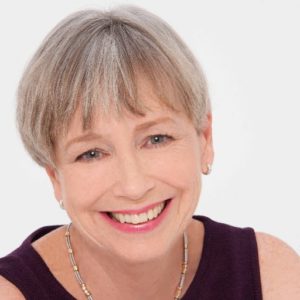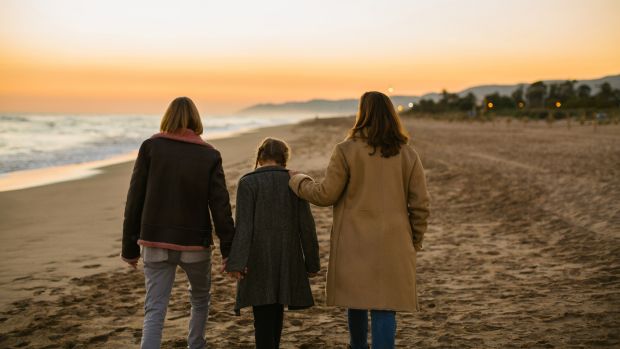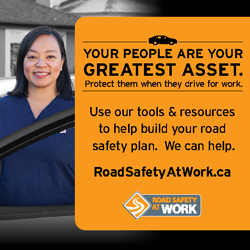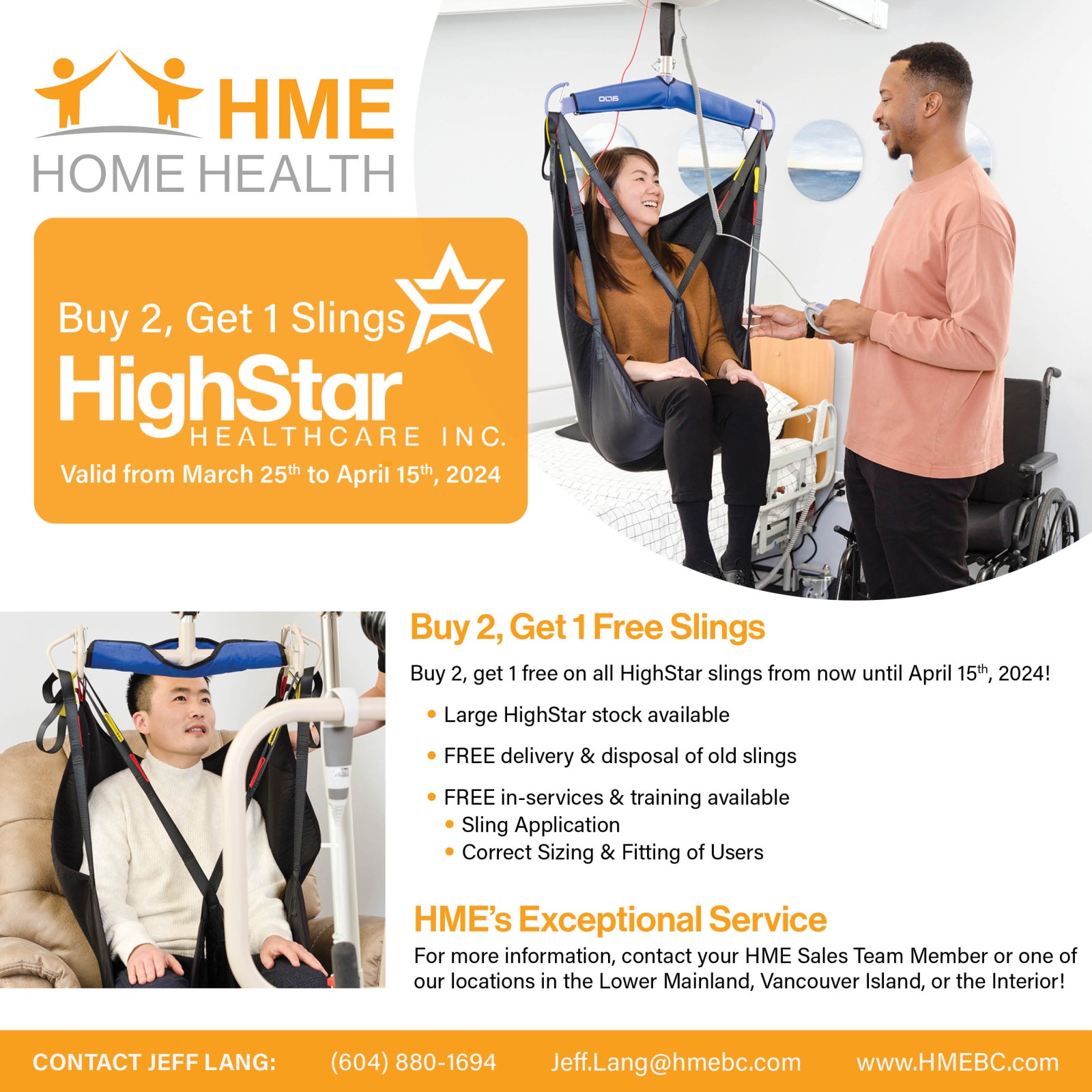By Melanie P. Merriman
My mother’s words sounded harsh – “I never want to live with either one of my girls” – but I didn’t take offense. It was her way of saying she never wanted to be dependent on us, or anyone.
After our father died, my sister Barbara and I knew that Mum would need our help as she aged. We also knew exactly how Mum felt about it. “I just don’t want to be a burden,” she said anytime the subject came up.
The last five years of my mother’s life, when she declined both mentally and physically, were difficult for all of us. This fiercely independent woman needed assistance, and both Barbara and I rearranged our lives to make sure she got it. Paradoxically, whatever burden there was in caring for her came not from her need for help but from her heels-dug-in resistance to accepting it and my own resistance to usurping her autonomy.

Desperate to stay in her apartment where she had lived for 35 years, my mother pretended to be doing well on her own, even after she started to slow down. She never told me that a neighbour was bringing her dinner several times a week or that she had stopped going to book club. I pretended, too – telling her I was coming to visit because of a business meeting nearby when really I just wanted to check on her, and then accepting her apparent well-being at face value even as she edged into her late 80s.
Eventually, as Mum approached 90, her best friend, who saw her several times a week, wrote to me and made me face the truth. My mother could not live on her own forever, and it wasn’t fair or even possible to expect her friends, who were also getting older, to step in. She would need to move somewhere closer to either Barbara or me.
Mum’s reaction to the idea was heartbreaking. “I’m too old to start over somewhere new,” she said, and I knew we had waited much too long to have this discussion. My mother’s flat and the surrounding community had become a comfortable cocoon. She couldn’t seem to understand that staying there, even with some kind of in-home help, would have been a true burden on Barbara and me; that in case of a fall or some other health crisis, one of us would have to fly in, leaving our own families and work.
My insistence that we preserve Mum’s autonomy for her sake, not ours – so that she would not feel like a burden – only made things worse. I refused to acknowledge that her overwhelming sadness and fear made it impossible for her to assess the situation clearly. I wanted her to make the choice, and I prolonged everyone’s agony by exploring unrealistic options in my desire to let her have her way.
I looked for services that would allow Mum to stay in her condo – things like personal care, meal preparation, car/van transportation. At that time, in 2006 and 2007, there were fewer options. I also considered an assisted living facility near her apartment so that she could, at least, stay in her own community. But her friend told me this would only isolate her more as still-active senior friends would not be likely to visit. Also, this option still kept Mum too far from either me or Barbara.
My mother’s friend again provided the necessary dose of reality. “You and Barbara will have to make this decision,” she wrote. With a mixture of relief and sadness, we chose Mum’s new home – an “independent” apartment in an adult congregate living facility near Barbara’s house.
My mother “let” me handle the packing up and selling of her flat. I was, honestly, grateful. Whenever she asked for help or willingly accepted the help that Barbara and I offered, that’s when any burden lifted.
Mum immediately loved her new home. She made friends and joined all the activities offered. Our new normal lasted about a year, until the day she fell and cut her arm. The deep wound required surgery and a two-day hospital stay, and it heralded a steeper curve of decline. Her reflexes slowed, and simple tasks of daily living – bathing, dressing, even walking – grew perilous. Still she resisted every accommodation – the medical-alert lanyard I installed over her objections, the walker she needed to stay upright, and the home health aide to assist with showering and dressing. And again, as much as Barbara and I wanted her to accept help so that we could have peace of mind, we couldn’t and wouldn’t force her.
Although Mum gradually consented to some assistance and was always delighted with the way it improved her quality of life, her resistance to additional care never lessened. She refused an evening home health aide, and, as usual, we were reluctant to force the issue. The result was every adult child’s nightmare: Mum fell before getting into bed and lay on the floor, bruised and disoriented, until morning. She spent eight days in the hospital and eight weeks in inpatient rehabilitation.
At this point, Barbara and I had learned our lesson. We presented Mum’s next move, to the memory unit at the assisted living facility across the parking lot from her apartment, as “what everyone, including your doctor, thinks is best.” We decorated the room with her favourite things, and breathed a sigh of relief when she declared it “lovely.” Six months later, with us by her, she died right there in her own bed.
Maybe, as Shakespeare wrote, “All’s well that ends well,” but if I could do it over again, there are things I would do differently.
First, I would pay better attention to the signs that my mother needed help as she got older: her growing isolation as she stepped back from community activities and stopped driving except to places she went often, her weight loss and her forgetfulness.
Second, I would be more realistic about the overall trajectory and consequences of aging. I had worked with hospices. I had studied aging and illness. I knew my mother would decline both physically and mentally. Still, the longer she seemed to do well, the easier it was to engage in magical thinking, also known as denial.
Finally, I would talk to her about a plan for her future long before either of us felt it was time. I now know that when everyone is ready to talk, it’s already too late to be proactive.
Barbara and I each have our own ideas about what did and didn’t constitute a burden during my mother’s years on what I call the tightrope of aging – the stage between active independent living and end-of-life. What I do know is that given all our frailties as human beings, Barbara and I did the best we could – and so did Mum.
– – –
Merriman is the author of “Holding the Net: Caring for My Mother on the Tightrope of Aging,” winner for autobiography/memoir in the American Book Fest’s 2017 Best Book Awards. Feature photo: Stocksy





